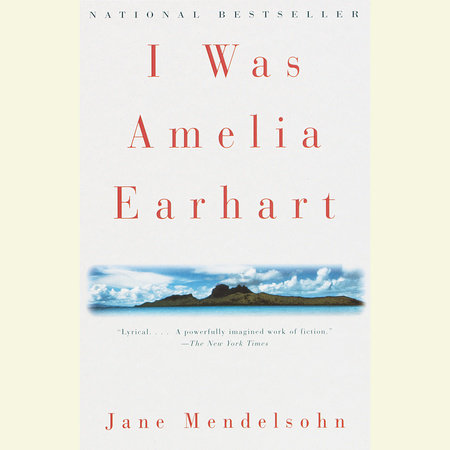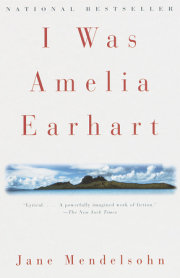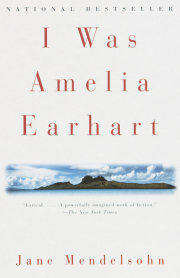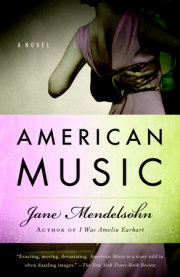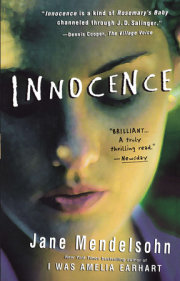I WAS AMELIA EARHARTThe sky is flesh.
The great blue belly arches up above the water and bends down behind the line of the horizon. It's a sight that has exhausted its magnificence for me over the years, but now I seem to be seeing it for the first time.
More and more now, I remember things. Images, my life, the sky. Sometimes I remember the life I used to live, and it feels impossibly far away. It's always there, a part of me, in the back of my mind, but it doesn't seem real. Whether life is more real than death, I don't know. What I know is that the life I've live since I died feels more real to me than the one I lived before.
I know this: I risked my life without living it. Noonan once said any fool could have seen I was risking my life but not living it. I had already been flying for a long time when he said that. It was 1937. I was thirty-nine. I was more beautiful than ever, but an aura of unhappiness traveled with me, like the trail of a falling comet. I felt as though I had already lived my entire life, having flown the Atlantic and set several world records, and there was no one to share my sadness with, least of all my husband. Charmed by my style and my daring exploits, the public continued to send me flowers and gifts, but the love of strangers meant nothing to me. My luminous existence left me longing and bored. I had no idea what it meant to live an entire life. I was still very young.
So, the sky.
It's the only sky that I can remember, the only one that speaks to me now.
I'm flying around the world, there's nothing but sky. The sky is flesh. It's the last sky.
I remember: I'm flying around the world, I'm flying over the Pacific somewhere of the coast of New Guinea in my twin-engine Lockheed Electra, and I'm lost. I watch the sky as it curves and swells, and every now and then I think I can see it shudder. Voluptuous, sultry in the naked heat, it seems to me to be the flesh of a woman. But then suddenly the light illuminates a stretch of more masculine proportions -- a muscular passage of azure heft, a wide plank like the back of a hand -- and I have to acknowledge, although I hate to admit it, the bisexuality of nature. I purse my lips a little when I realize this, and scrunch my nose up to rearrange my goggles. My eyes and my eyes reflected in the windshield hold the sun in them, and it burns. I blink and reach one arm directly overhead. My fingers grasp a dial. Out of the far corner of my field of vision, I catch a glimpse of the underlying sea. Thinking to myself that this might be the last day of my life, that I'm hot, and that I am hungry, I adjust the dial and lower my arm. The sea is dark. It is darker than the sky.
This is the story of what happened to me when I died. It's also the story of my life. Destiny, the alchemy of fate and luck. I think about it sometimes, under a radiant sun. The tide laughs. The light swims. I watch the fish-skeleton shadows of the palm leaves on the sand. The clouds ripped to shreds.
Today when I think of my former life, I think of it as a dream. In the dream I am another person. In the dream I am the most famous aviatrix of my day, a heroine. I am Amelia Earhart.
Copyright © 1996 by Jane Mendelsohn.. All rights reserved. No part of this excerpt may be reproduced or reprinted without permission in writing from the publisher.

